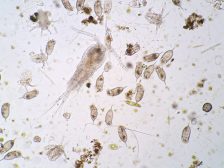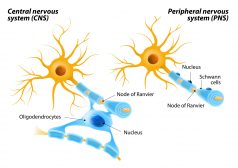Definition
noun, singular: protozoon
Eukaryotic organisms belonging to a group characterized for being single-celled, most of them motile and heterotrophic
Supplement
In a five-kingdom scheme of classifying organisms, Protozoa belongs to a taxonomic group within Kingdom Protista, and typically divided on the basis of their means of locomotion:
- Flagellates – protozoans that make use of flagella for locomotion, (e.g. Giardia lambdia)
- Amoeboids – protozoans with temporary body projections called pseudopods, (e.g. Entamoeba histolytica)
- Sporozoans – protozoans that lack locomotory apparatus and therefore are generally non-motile, (e.g. Plasmodium knowlesi)
- Ciliates – protozoans that have ciliates, (e.g. Balantidium coli)
The former four subphyla used to classify protozoans based on locomotion are as follows: (1) subphylum Sarcomastigophora (includes a superclass of flagellates Mastigophora, superclass Sarcodina, and superclass Opalinata), (2) subphylum Sporozoa (includes the sporozoans), (3) subphylum Cnidospora (includes microsporideans, and (4) subphylum Ciliophora (includes the ciliates). This system of classification though is no longer as popular as it was since recent methods used as basis for classification involves DNA sequences. Furthermore, the use of the term protozoa is now discouraged and Protista or protists are preferred.
Word origin: from Greek protohi = first and zoa = animals
See also:
- protista
- flagellate
- ciliate
- sporozoa
- amoeba
Related term(s):







